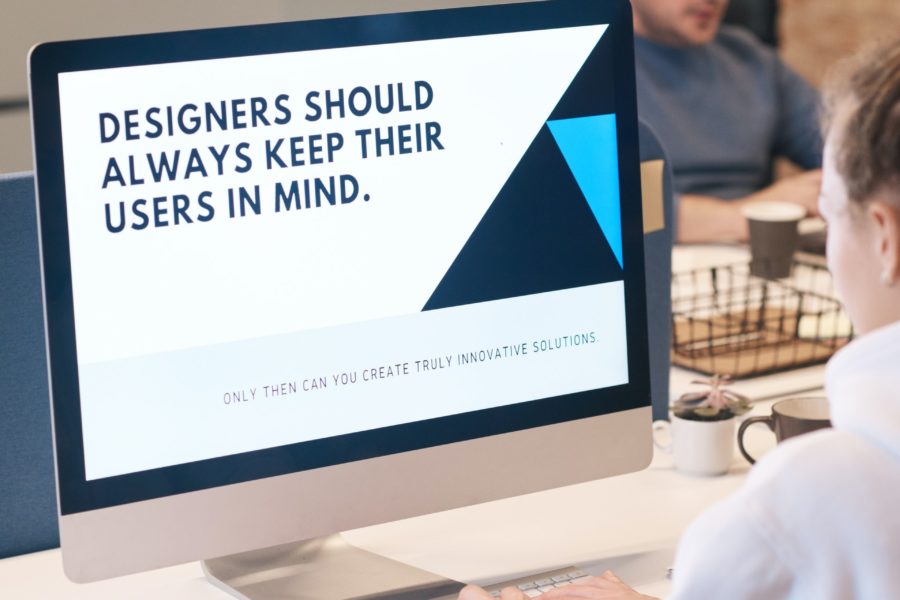Over the last two decades, software companies have developed tools and techniques to find and evaluate the technical skills of potential candidates. Resume keyword scanners, online coding tests, cloud-based assessment platforms, and more are helping businesses find candidates with the right skills. However, when hiring developers, companies need to understand that software development as a discipline has evolved.
Software development is no longer only about cranking out code. It has become a multidisciplinary field. Besides working with development teams, developers also need to interact with other aspects of the business. They need the temperament and communication skills to work with various departments, like customer service, finance, sales, marketing, human resources, and general management. Also, developers need to maintain applications or components with different creativity, stability, and security requirements.
Different Development Jobs Require Different Personality Types

With today’s diverse software responsibilities, the personality of a developer is an essential factor. Creative risk-taking might be an excellent attribute for a front-end developer but a dangerous trait in a back-end engineer who maintains sensitive user data. Furthermore, personality type affects work performance, job satisfaction, and career success.
Traditional resumes are inadequate as they only represent technical capabilities. There is no insight into the person behind the skills. So recruiters need new innovative tools to find developers with the right coding skills and behavioral tendencies. Personality assessment can reveal a candidate’s strengths and weaknesses and predict future performance. It can work as a pre-selection tool to match the job requirements.
How DevReady’s Developer Profile Incorporates Personality
Aptitude and personality tests are on the rise. According to Harvard Business Review, 76% of businesses with more than 100 employees already use personality tests to hire external employees. The number is expected to increase to 88% in the coming years.

At DevReady, our focus is on the software development community. We evaluate developers on both technical skills and personality traits during our vetting process. Our proprietary personality assessment tool determines the developer’s behavioral preferences across 12 categories with an independent score of 1-100 for each category. In the Developer Personality section of the developer profile, we organize the 12 categories into six pairs. Each pair represents two related opposites. The compact personality representation provides a quick way to comprehend the developer’s core competencies, decision-making process, and worldview. Companies can use the personality section of the profile to compare candidates and find the perfect match for their team.

Our Six Personality Pairs
Independent vs. Collaborative
Some developers are fiercely independent, while others thrive in collaborative environments. When considering a developer, the job requirements dictate which traits are more valuable. Independent work produces more creative ideas, but collaboration helps to exchange ideas widely, identify problems faster, and deliver stable solutions. Also, independent developers might prefer remote work, while collaborators might enjoy working with others in an office.
Trailblazer vs. Conservative
Trailblazers are risk-takers. They devise innovative solutions, even if the solutions are less proven. On the other hand, conservative developers tend to stick to proven paths. You might want to use trailblazers to improve your application’s front-end or UI/UX. In contrast, conservative developers can help maintain stable, secure, and reliable systems in production, like performing DevOps tasks. You can also build teams with both personality types to generate diverse ideas and get the most out of your hires.
Generalists vs. Specialists
Generalists have a desire to acquire expertise in multiple areas of software development. They are well-rounded and broad in their knowledge. Generalists are best suited for project management, leadership, and software architect roles. Specialists tend to concentrate on a particular technology. They are the “rockstars” in their field of interest. They might specialize in front-end, back-end, mobile, or UI/UX development.
Planner vs. Doer
Planners are well-organized developers who have a tendency towards patterns and practices that lead to more scalable solutions. They take the time to plan for hypothetical problems. Planners perform better at project management, architecture design, system integration, and infrastructure planning. But doers are great at firefighting and getting things done fast. A doer can help teams deploy quick fixes in emergencies.
Idealist vs. Pragmatist
Idealist developers are perfectionists. They like to create elegant solutions and spend significant time on performance optimization and precision. Pragmatist developers take a more practical approach. They know that the most elegant solution is sometimes not the right solution given constraints like budget, time, and business objectives. For most organizations, pragmatist developers will be the best fit. But idealists can be a great asset for software projects requiring high precision, like health care or financial applications.
Abstraction vs. Control
Developers who like abstraction are comfortable using third-party libraries and tools to achieve their goals. It leads to more development speed and efficiency. In contrast, developers who want control tend to build solutions from the fundamentals. They might like to use Objective C rather than a new language like Swift, which has more pre-built libraries. Control-based developers are slower in producing code, but they can help businesses develop proprietary applications if third-party libraries and tools pose a business or security risk.
Use Our Developer Personality Profile for Your Next Hire

DevReady’s Developer Profile System is a data-driven approach to gaining insights into developers. You can get an overview of a candidate’s personality even before conducting the first interview. Traditional resumes only provide a list of technical skills. Our profile system is designed to help you visualize the candidate’s key technical and behavioral characteristics. You can use these insights to determine if a developer is the right fit for the job and your company culture. It is an invaluable tool to reduce the time and cost of recruiting.
DevReady provides a global community of elite developers. We pride ourselves on selecting the “best among the best.” All our developers go through aptitude and personality assessments. Learn more about hiring your next DevReady developer.
- https://devready.io/
- https://devready.io/developers/thiago-c/
- https://devready.io/why-you-need-a-blended-workforce-for-the-success-of-your-company/
- https://devready.io/creating-liquid-workforce/
- https://www.zdnet.com/article/its-time-to-ditch-the-cv-why-tech-recruiters-are-changing-how-they-hire/
- https://www.hiresuccess.com/help/understanding-the-4-personality-types
- https://www.hiresuccess.com/help/developer-personality-type-at-work
- https://www.ncbi.nlm.nih.gov/pmc/articles/PMC2747784/
- https://www.apa.org/topics/managing-human-capital/predict-job-performance
- https://beapython.dev/2020/07/06/11-beneficial-personality-traits-of-a-successful-software-developer/
- https://www.entrepreneur.com/article/378658
- https://www.sciencetimes.com/articles/25786/20200523/ai-accurately-determine-personality-type-based-selfie-58-time.htm
- https://www.indeed.com/career-advice/finding-a-job/jobs-for-myers-briggs-personality-type
- https://www.eng.uwo.ca/electrical/faculty/mcisaac_k/docs/mbti-IJHCS-v2.pdf
- https://d1wqtxts1xzle7.cloudfront.net/34237194/personality_and_job_performance-with-cover-page-v2.pdf











